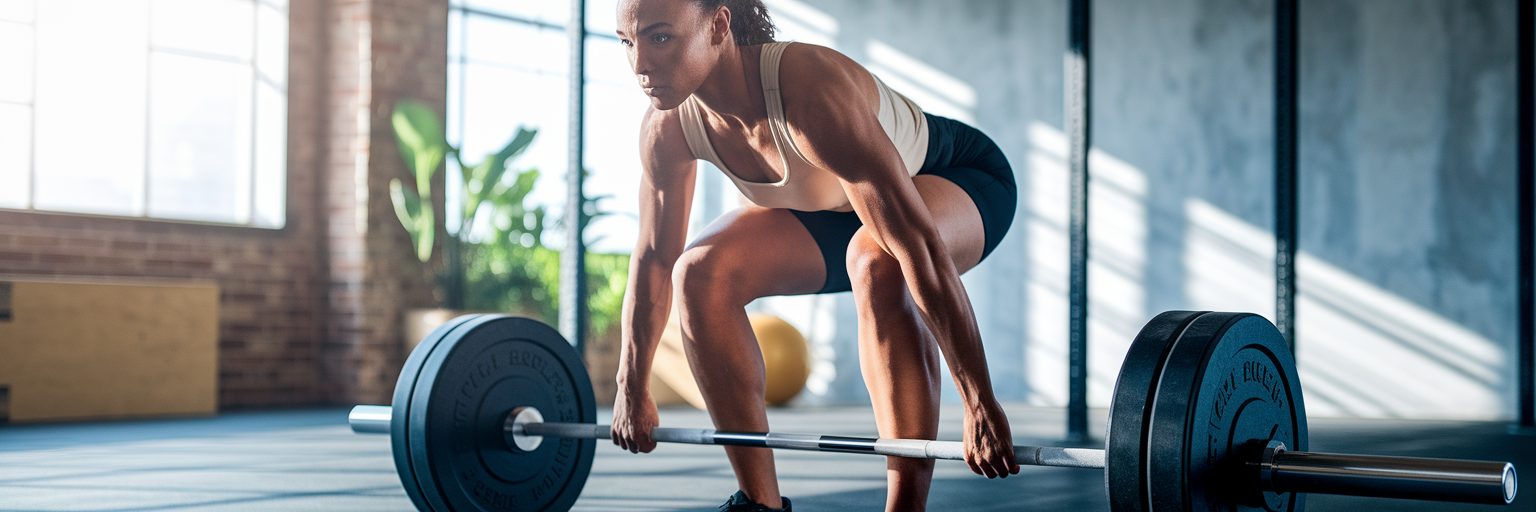More athletes than ever are embracing plant-based diets, discovering new levels of performance and well-being. But this shift often comes with a question: how do you optimize nutrition to keep hitting your goals? While whole foods are the foundation, certain supplements can bridge nutritional gaps, and creatine is one of the most misunderstood.
Why Creatine Matters for Plant-Based Athletes
Before we tackle the myths, let's talk about why creatine is even part of the conversation for vegans. It’s not about fixing a problem, but about unlocking potential that’s already there. Think of it as fine-tuning your body’s engine for peak performance.
Creatine's Role as Your Body's Energy Spark Plug
Imagine your muscles are a high-performance engine. Creatine acts like the spark plug, providing the immediate burst of energy needed for powerful, short-duration movements. It helps your body rapidly regenerate its main energy currency, adenosine triphosphate (ATP). That explosive power you need for the first few reps of a heavy squat or a quick sprint? That’s where your creatine stores come into play. Without it, that initial burst of power fades much faster.
The 'Creatine Gap' in Plant-Based Diets
The primary dietary sources of creatine are meat and fish. Because of this, individuals following plant-based diets naturally have lower creatine reserves in their muscles. This isn't a deficiency or a flaw in your diet. Instead, it’s a performance gap that can be easily and safely closed. Supplementing with creatine simply tops off your tank to the same level as your omnivorous counterparts, leveling the playing field for plant based athletic performance.
How Lower Stores Impact Your Workouts
That natural gap in creatine stores can show up in your training. Have you ever felt like you hit a wall a few reps earlier than you wanted? Or maybe your strength gains have plateaued despite consistent effort? This can be a sign that your immediate energy reserves are tapping out too soon. By supplementing, you give your muscles that extra bit of high-octane fuel to push through those last crucial reps, which is where real progress is made. While this covers the basics, understanding the full spectrum of creatine's impact is key to appreciating its value.
Common Creatine Myths Debunked
Let's clear the air. A lot of the hesitation around creatine comes from outdated information and straight-up myths. When you look at the science, a much clearer picture emerges, especially when it comes to common creatine monohydrate myths.
-
Myth: Creatine causes bloating and unnatural water weight.
Fact: This is one of the biggest misunderstandings. Creatine does draw water, but it pulls it into your muscle cells, not under your skin. This process, called cell volumization, is actually beneficial for performance and gives your muscles a fuller, more defined look. It’s not the same as the subcutaneous water retention that makes you feel puffy. In fact, a 2021 review in the Journal of the International Society of Sports Nutrition confirms that creatine does not cause dehydration or other negative water-balance issues in athletes. -
Myth: Creatine is an unsafe anabolic steroid.
Fact: This is completely false. Creatine is a naturally occurring compound made from amino acids. Its chemical structure is not even remotely similar to a steroid. It is one of the most extensively studied supplements in sports nutrition, with hundreds of studies confirming its safety and effectiveness. It doesn't manipulate your hormones; it works with your body's natural energy systems. -
Myth: Creatine isn't vegan-friendly.
Fact: While creatine is found in meat, the creatine you buy as a supplement is not derived from animal products. It is synthesized in a laboratory from non-animal raw materials. This means you can easily find high-quality, effective creatine that aligns with your vegan ethics. Just look for a "Certified Vegan" logo on the label to be sure. -
Myth: Creatine will damage your kidneys.
Fact: For healthy individuals, this myth has been repeatedly debunked by decades of research. The scientific consensus is clear: when taken at recommended doses, creatine does not cause kidney damage. For instance, comprehensive reviews by organizations like the National Institutes of Health have found no evidence of long-term harm to kidney function in healthy subjects. The only caveat is for those with a pre-existing kidney condition, who should always consult their doctor before starting any new supplement.
| Common Myth | The Scientific Reality | What It Means for You |
|---|---|---|
| Creatine causes bloating. | It increases water inside muscles, not under the skin. | Your muscles will look fuller and more hydrated, not 'puffy.' |
| It's a type of steroid. | It's a natural amino acid derivative, unrelated to steroids. | It's a safe, well-researched performance aid, not a synthetic hormone. |
| It isn't vegan. | Supplements are synthetically made from non-animal sources. | You can easily find certified vegan options that align with your ethics. |
| It's harmful to kidneys. | Extensive research shows it's safe for healthy individuals. | If you have healthy kidneys, there's no scientific reason to worry. |
Note: This table summarizes findings from decades of sports nutrition research. Always consult a healthcare professional before starting any new supplement regimen, especially if you have pre-existing health conditions.
The Science-Backed Benefits for Vegan Fitness

Now that we’ve cleared away the fiction, let’s focus on the facts. The vegan creatine benefits are well-documented and can be particularly noticeable for those on a plant-based diet. Because your baseline levels are naturally lower, topping them off can lead to more significant improvements in your training.
- Amplified Strength and Power Gains: This is creatine’s claim to fame. With saturated muscle stores, you can push out those extra one or two reps that trigger real strength adaptations. For vegans, the difference between pre-supplementation and post-supplementation power output can feel like night and day.
- Accelerated Muscle Growth: Creatine does more than just provide energy. It supports the biological pathways that signal muscle repair and growth. When you combine it with resistance training and adequate protein, you create the ideal environment for building lean muscle.
- Enhanced Cognitive Function: Here’s a benefit you might not expect. Your brain uses a lot of energy, and studies have shown that creatine can support cognitive tasks, such as short-term memory and processing speed. That means better focus in the gym and potentially at your desk, too.
- Improved Exercise Recovery: By helping to replenish ATP stores more quickly, creatine can reduce the time it takes for your muscles to recover between sets and between workouts. This means you can get back to training at your best, sooner, with potentially less muscle soreness.
Of course, creatine works best when your body has the fuel to rebuild. Pairing it with delicious, high-protein meals is the key, and we've put together some easy vegan protein recipes you'll actually crave to help you do just that.
Integrating Creatine with a Plant-Based Diet
So, you’re ready to give it a try. The good news is that learning how to take creatine for vegans is simple. There are no complicated rules, just a few best practices to get the most out of it.
Dosing Strategies: Loading vs. Maintenance
You have two main options. The "loading phase" is the faster route: you take about 20 grams per day (split into four 5-gram servings) for 5-7 days to quickly saturate your muscles. After that, you drop to a "maintenance phase" of 3-5 grams daily. Alternatively, you can skip the loading and just start with the 3-5 gram daily dose. It will take a bit longer to see the full benefits (about 3-4 weeks), but it’s just as effective and may be gentler on your stomach.
Optimal Timing and Combinations
While you can take creatine anytime, some research suggests that taking it post-workout with carbohydrates and protein can enhance its absorption. A simple and effective way to do this is to add your daily 3-5 gram scoop to your post-workout smoothie. A banana for carbs and a scoop of vegan protein powder is a perfect combination.
The Synergy with Plant-Based Protein
Think of it this way: creatine is the spark plug that provides the energy for your workout, while protein provides the building blocks to repair and grow your muscles afterward. They work together as a team. One without the other limits your potential. Combining creatine with a clean, effective protein source is a proven strategy. For example, a scoop of our high-quality chocolate vegan protein can make your post-workout shake both delicious and effective.
Consistency is Key
The most important rule is to be consistent. Creatine’s benefits come from keeping your muscles saturated over time. This means you should take it every day, including on your rest days. Make it a simple part of your daily routine, like brushing your teeth, and you’ll ensure your muscles are always primed for performance.
Choosing a High-Quality Vegan Creatine

When you're ready to buy, the supplement aisle can feel overwhelming. But finding the best supplements for vegan athletes is straightforward if you know what to look for. Quality and purity should be your top priorities.
- Focus on Creatine Monohydrate: Don't get distracted by expensive, flashy forms of creatine. Creatine monohydrate is the most researched, most effective, and most affordable form on the market. There is little to no scientific evidence that other forms work any better.
- Look for Third-Party Testing: This is non-negotiable. A third-party certification from a reputable organization like NSF Certified for Sport or Informed-Sport ensures the product is free from contaminants and that what's on the label is what's in the bottle.
- Verify Vegan Certification: To ensure the product aligns with your values, look for a "Certified Vegan" logo on the packaging. This guarantees that no animal-derived ingredients were used in its production.
Finding a supplement that checks all these boxes gives you peace of mind and allows you to focus on your fitness goals. For a straightforward option that is third-party tested, vegan, and uses pure creatine monohydrate, you can explore options like our own creatine monohydrate.



